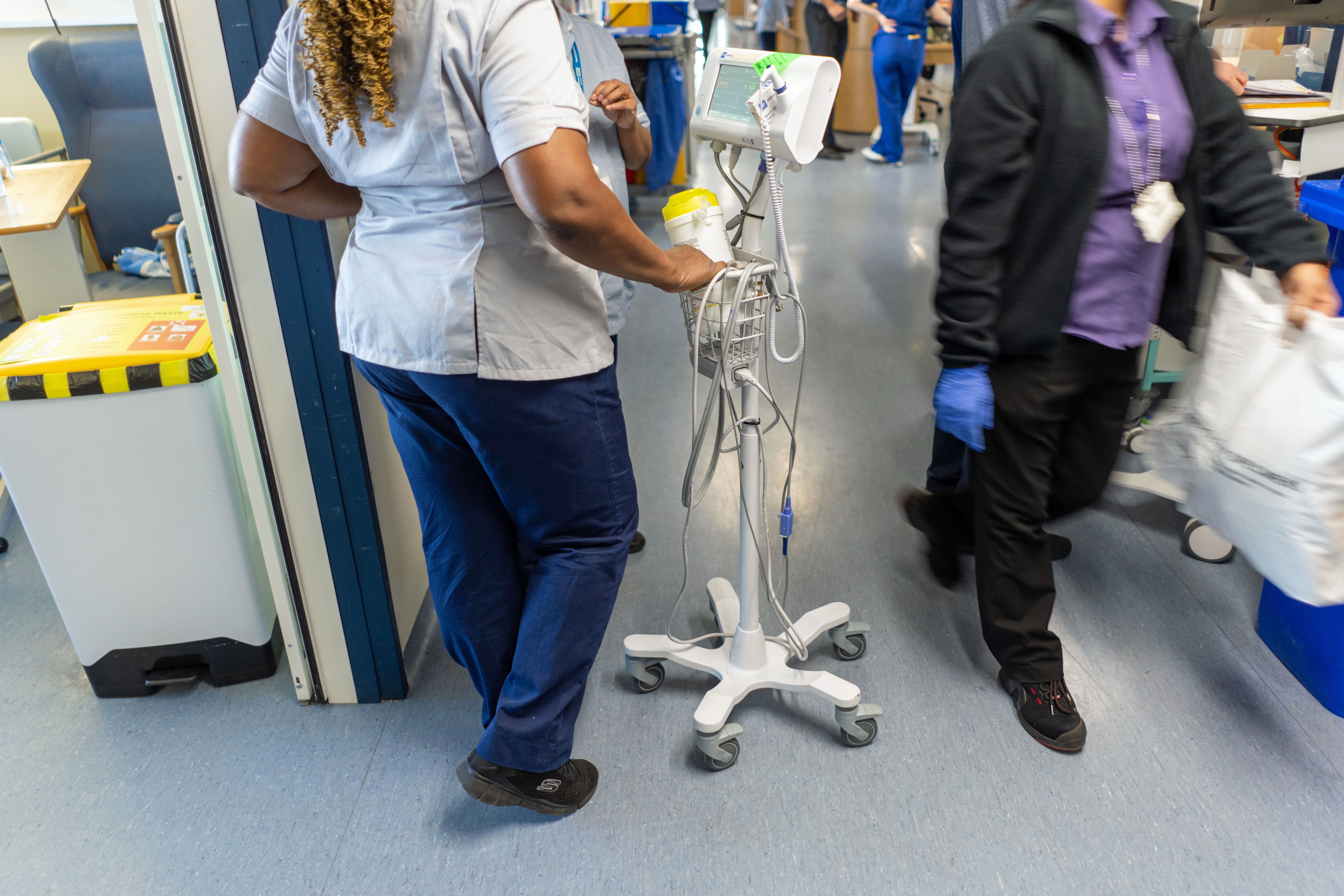The NHS saved my life – twice. Now it feels like it’s trying to kill me
When it comes to seeking advice for my chronic health condition, writes James Moore, why is it I’d rather turn to X/Twitter than my local GP?


I wish I could say I was surprised by the British public’s satisfaction with the NHS falling to a record low in the latest British Social Attitudes Survey, I really do. But I’m one of them.
The latest figures reveal that overall satisfaction has taken a five point tumble to just 24 per cent – the lowest since this authoritative and oft-quoted study began in 1983. This is, by any standards, a dismal result. It is deeply disturbing that we’ve reached this low point – even frightening. I say this as one of the health system’s most regular (and reluctant) users.
The NHS has saved my life twice. First, by diagnosing and treating my incurable type 1 diabetes; second, when I was run over by a cement truck and nearly died. I’m grateful for my treatment, of course – but since then, I’ve been someone who relies on the NHS not out of choice, but of necessity. And at times, it feels like the NHS is trying to kill me.
This is how bad things have got: over the last week, my T1 has been running haywire and my blood sugars have suddenly started to run low. This can be dangerous. One is generally advised to seek medical advice.
But I have not felt able to approach the NHS, given some of the poor treatment I’ve received – and written about – in the past. Instead, I turned to the social media platform X, formerly Twitter. And if people with long-term health conditions like me are turning to Elon Musk for answers instead, there’s something disastrously wrong with the system.
Why did I do it? Well, quite simply: the type 1 community there has lately provided better advice and support than my NHS-run clinic.
In recent years, the best diabetic care tip I’ve had came via X from a woman called Lesley Ross, who has been energetically campaigning for T1s in Scotland to be able to access the same revolutionary tech being rolled out in England.
My clinic, by contrast, admitted to failings in my care after my frustration with it built to a level where I felt I had no choice but to raise a formal complaint. I did receive an apology, in the end. But the letter still read to me as a polite “get lost” and I’m currently considering bringing a case to the NHS Ombudsman.
Back to the survey: the main reasons respondents to the survey gave for being dissatisfied with the NHS were (it won’t surprise you to learn) waiting times for GP and hospital appointments (71 per cent), followed by staff shortages (54 per cent) and then the widespread view that the government doesn’t spend enough money on it (47 per cent).
Those findings chime with my own experience. In addition, I would raise the issue of the layers of bureaucracy you have to battle through to simply speak to someone, let alone get anything done. It seems to me that for some working within the system, the attitude towards the patient is one of inconvenience.
I have read the NHS constitution. It states that the patient should be “at the heart of everything we do”. If there were an NHS constitutional court, rather than an ombudsman which will now consider only what it judges to be the most serious complaints, I wonder how public attitudes might improve.
Yet there is some comfort to be found in the data: a large majority (91 per cent) agreed that the NHS should be free of charge when you need to use it. There was also overwhelming backing for the service being primarily funded through taxation (82 per cent) and the principle that it should be available to all (82 per cent). A thumping 84 per cent agreed that the service had a funding problem and many (48 per cent) would be prepared to pay more in tax to address that.
There is clearly a message being sent to Britain’s politicians here – in particular those with their hands on the purse strings now (Jeremy Hunt) and in the future (Rachel Reeves). If we are going to be asked to pay more for the service (and I’m among those that would have no problem with that) we have a right to expect better from it.






Join our commenting forum
Join thought-provoking conversations, follow other Independent readers and see their replies
Comments